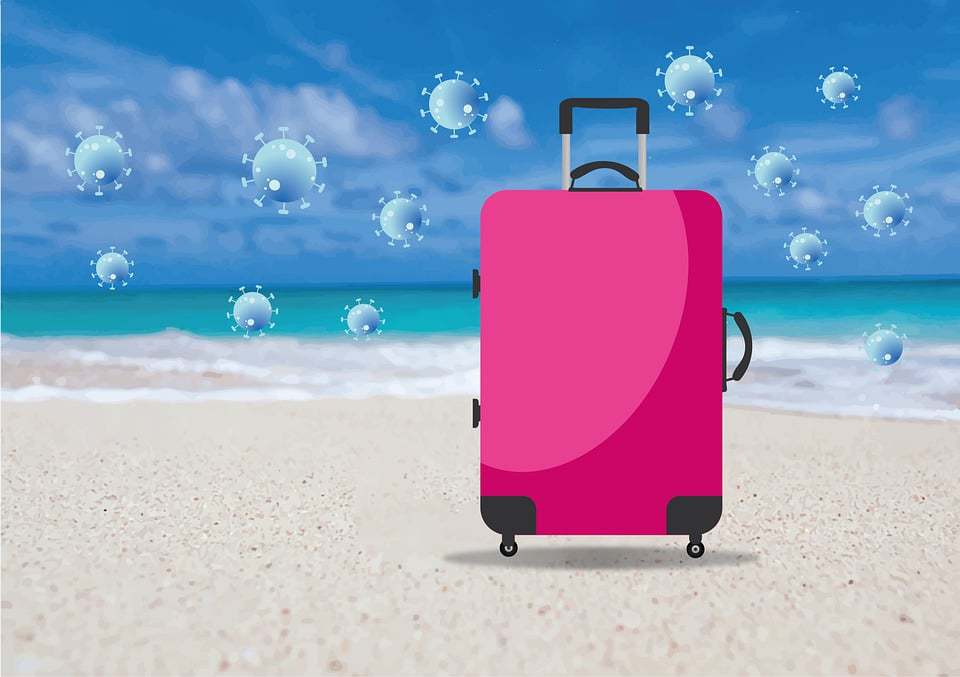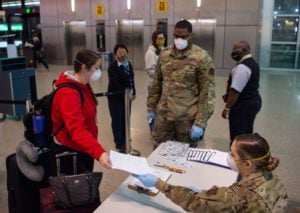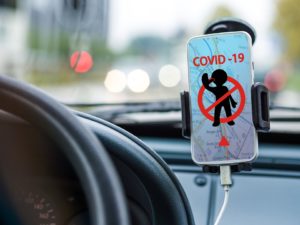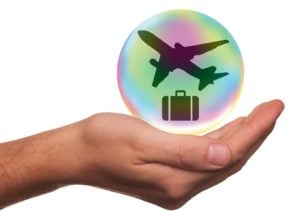Table of Contents
As the travel restrictions begin to ease amid the coronavirus pandemic, the World Health Organization (WHO) and the Centers for Disease Control and Prevention (CDC) have issued multiple travel instructions to help safeguard your health and prioritize safety, irrespective of the location of travel. However, before you read further, remember that the WHO and CDC suggest traveling only if required. If traveling is necessary, remember and implement the following precautionary measures.
Find Local Restrictions and Travel Requirements
The state and central governments of every country are implementing specific travel restrictions and requirements depending on their coronavirus epidemic situation. While the wearing of masks and using hand sanitizers is common, some locations require you to submit a valid and recent COVID-19 negative report from authorized laboratories if you are traveling interstate. In other cases, there is a mandatory quarantine period of 7 days or 14 days, depending on the severity of the epidemic.
Therefore, it is necessary to research local travel restrictions to avoid unpleasant delays and surprises. The official state government websites would be the best resource for up-to-date information. If you are booking a trip well in advance, ensure to check back on the latest updates as the date of departure comes near and also know about some travel tips.
Airport and Flight Rules
Assuming that your travel involves flights predominantly, remember that air travel was the primary reason why the coronavirus could spread far and wide. Practicing social distancing at airports is difficult. While airports are prepared for handling the renewed influx of travelers, certain safety precautions need to be taken by you, as recommended by the Centers for Disease Control and Prevention (CDC) and the aviation administration of various countries. These are:
- Wear a face mask at all times.
- Keep a distance of 6 feet between you and other passengers. Do not let any airline staff member handle your belongings. All airports are now prepared with visual signs to help you with boarding passes, luggage check-in, and security protocols.
- Avoid contact with any sick person. If you notice anyone coughing or sneezing, bring it to the attention of the authorities.
- Do not come in contact with touched surfaces like elevator buttons or handrails.
- If you are using airport washrooms, wash your hands with soap water for at least 20 seconds. Avoid touching washroom surfaces and keep a sanitizer handy.
- Avoid buying food at the airport kiosks. Even though they will be adequately sanitized, it is better to pack and carry food from home if it’s a long-distance trip.
- If mandatory, you need to wear a PPE suit and a face shield for the entire flight duration. Not all airports require this; check before leaving for the journey.
Road Travel
Renting a car or self-driving car seems to be a better alternative to public transport. Also, having a personal vehicle to travel within the city limits gives you better control over the environment. You can hire a car from the hotel or a homestay or book one on apps like Uber. Here are some pointers to follow:
- Ask the Uber driver or the local car rental company to show that the car meets the local COVID-19 regulations. For instance, the Uber app shows when the vehicle was last cleaned and sanitized.
- If a car driver’s services are required, ask the driver to produce the latest COVID-19 negative report. Enquire where the driver traveled the last few days and whether the driver came in contact with a COVID-19 patient or not.
- Avoid purchasing food and water during the trip. Prepare it at your home or buy from where you are staying.
- Carry hand sanitizer, disinfectant wipes, and face masks.
- If the car needs to be refueled during the travel, use a disinfectant wipe on any touched surface if self-refueling.
- If the car needs to be used on multiple occasions, arrange for it to be disinfected every time.
Hotels and Lodging
Irrespective of whether you are staying with a prominent hotel chain or a homestay or a local guesthouse, it is essential that they protect their staff and guests, both. Here are a few fundamental aspects you need to check:
- The room is thoroughly cleaned and sanitized, and it has enough stock of tissues, masks, and sanitizers. It has to be cleaned and disinfected daily.
- Once you check-in, a staff member should use disinfectant wipes to clean visible surfaces such as doorknobs, washroom, tabletops, bedposts, and others in your presence.
- Any form of payment is contactless. Pay online directly. Avoid cash or card dealings.
- The staff maintains adequate protection at all times with masks and being socially distant.
- Avoid touching any surfaces outside your room, such as the elevator switch or the guardrails on the stairs.
- The food preparation area is clean and hygienic.
- There should be social distancing in common areas such as the parking or the front desk.
- There should be a doctor-on-call to handle any patient showing COVID-19 symptoms and take preventive measures instantly.
- Try to avoid using laundry services. Keep soiled clothes in a separate bag to wash later.
Call the hotel or the vacation rental before booking. Talk about their coronavirus prevention measures in case a situation arises. While the information would be available on their website, it is recommended to talk to their representative personally before booking.
Will traveling be completely risk-free with the above preventive measures?
Unfortunately, no! It will never be entirely risk-free for travel during the coronavirus epidemic until the virus is defeated globally. A certain measure of risk will always persist. Although the mortality rate is low, traveling, when necessary, prevents chances of coronavirus infection. According to the CDC, 40% of the COVID-19 positive patients are asymptomatic; however, the risk of asymptomatic patients spreading the virus is 75% (source).
Further, your age and medical history are contributing factors. The mortality rate of people between 10 and 39 years of age is 0.2%, and the affected populace largely belongs to the above 50 bracket. People with medical conditions such as cancer, diabetes, hypertension, and cardiovascular problems are more susceptible to coronavirus.
What to do if you begin to show COVID-19 symptoms during travel?
Coughing, difficulty in breathing, runny nose, sore throat and fever are the common symptoms of the novel coronavirus along with flu and pneumonia. If you develop any of those symptoms during travel, here is what you should do:
- Inform and seek immediate medical help. If you stay in a hotel, inform the front desk, ask for a doctor, and isolate yourself in the room. If you are with relatives, or a vacation rental or a homestay, inform the other people living there immediately and isolate yourself.
- Visit a laboratory for a COVID-19 test. If you have a prior COVID-19 negative report, carry it along.
- The laboratory and/or the concerned doctor will inform the local authorities. Share your phone number, home address, and other documents for record-keeping. The phone number will be used for contact tracing and informing the people you came in contact with.
- You are safe if the COVID-19 test report is negative again, which means you probably had a common cold or flu. If the COVID-19 test is positive, you must be quarantined as per the local laws of the state/country, depending on the severity of the infection. Institutional quarantine is preferred in case of a severe infection, necessitating the use of a ventilator.
- If you are not in your resident country while this happens, inform the embassy and contact your family.
- After a minimum of 14-day quarantine, a COVID-19 test will be conducted again. If it is negative, you can resume your travel and return to your country. If it is positive still, the quarantine period is extended.
Will travel insurance help?
Coronavirus treatment is expensive. Travel insurance might help mitigate treatment costs based on two conditions – (a) when the plan was purchased and (b) the place you are traveling. Travel insurance is made of health insurance and trip insurance; travel health insurance covers sudden illness or accidents, and travel trip insurance covers travel related problems such as lost baggage.
Travel insurance will cover coronavirus treatment costs only if you traveled to the country before the coronavirus outbreak. For example, if you are from the United States, and you traveled to Indonesia before the outbreak of coronavirus and became infected, the insurance will cover the medical costs.
Do note that if your country has issued an advisory against visiting a country and you still visit the country, the travel insurance will not cover any medical costs arising out of the novel coronavirus infection.
Remember that not all insurance companies are covering coronavirus under their travel insurance policies. Contact your current travel insurance provider for clarity.
In closing
Coronavirus is a global pandemic without a vaccine in sight. Given the speed with which it is spreading in countries like the United States and India, it seems we will still be dealing with it in 2021. Traveling could be necessary but not at the cost of one’s health and safety and those around us.
Travel if needed, but be mindful of the suggested precautionary measures. A mask, a face shield, and a sanitizer are your closest allies for the next few months.








